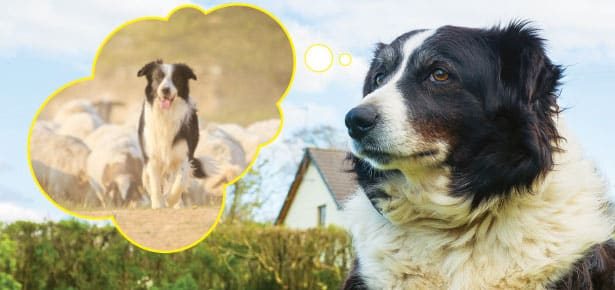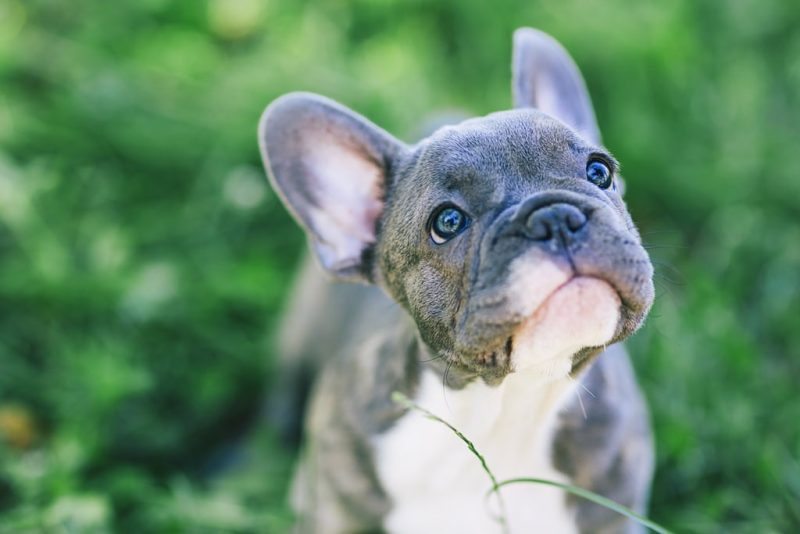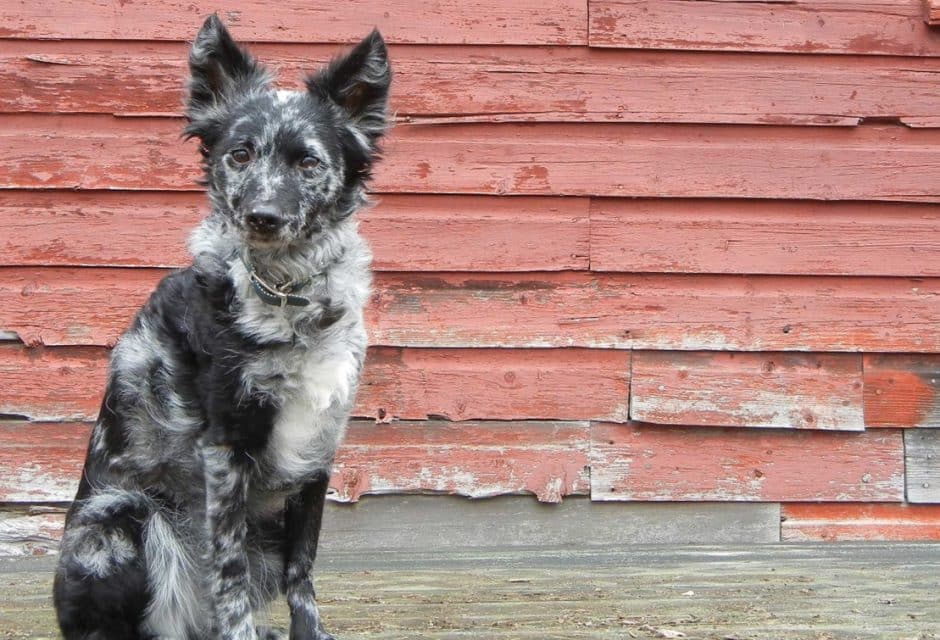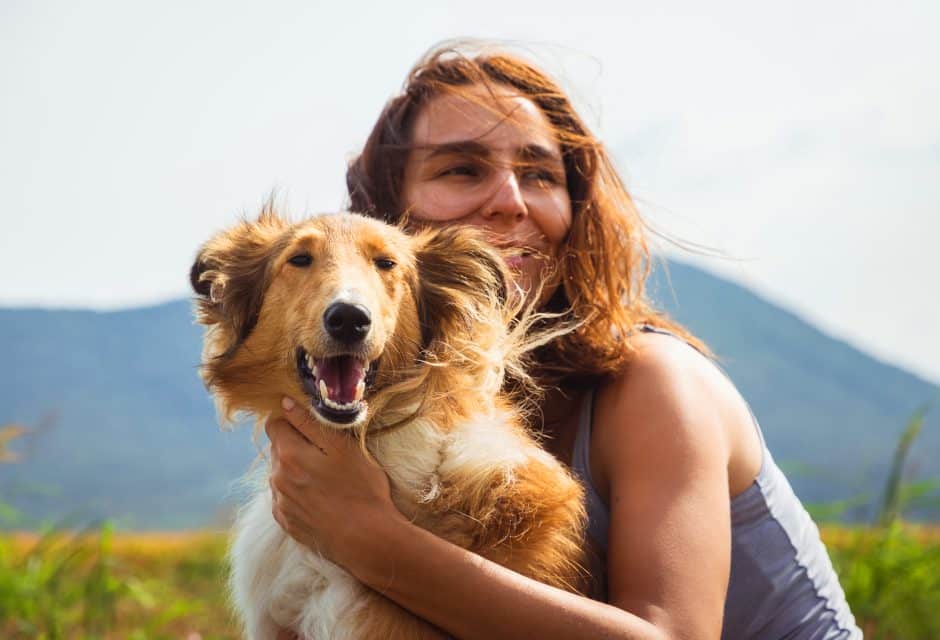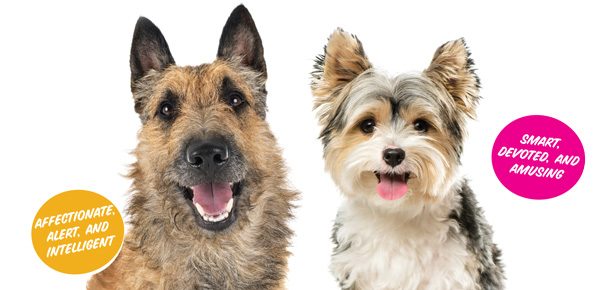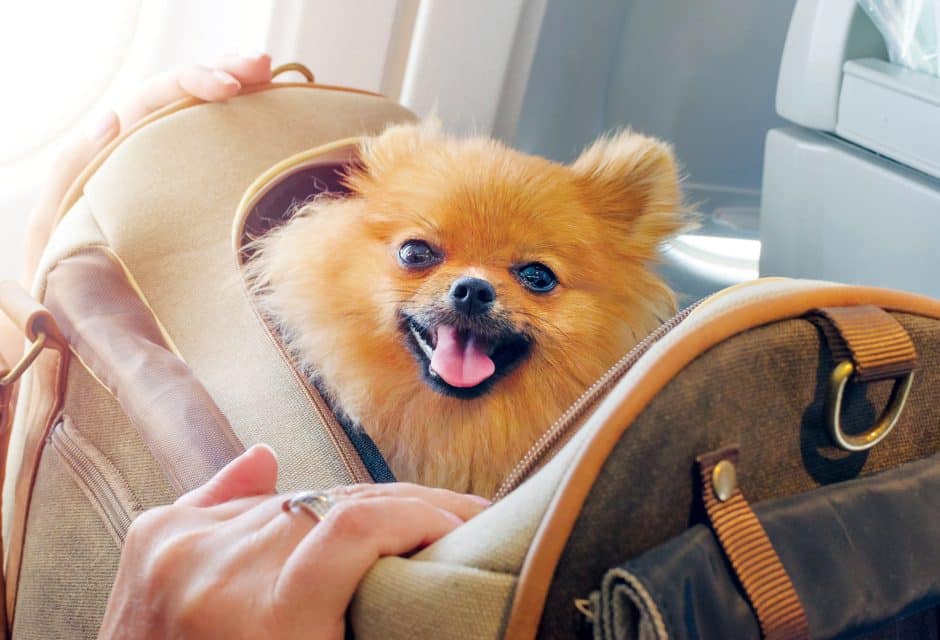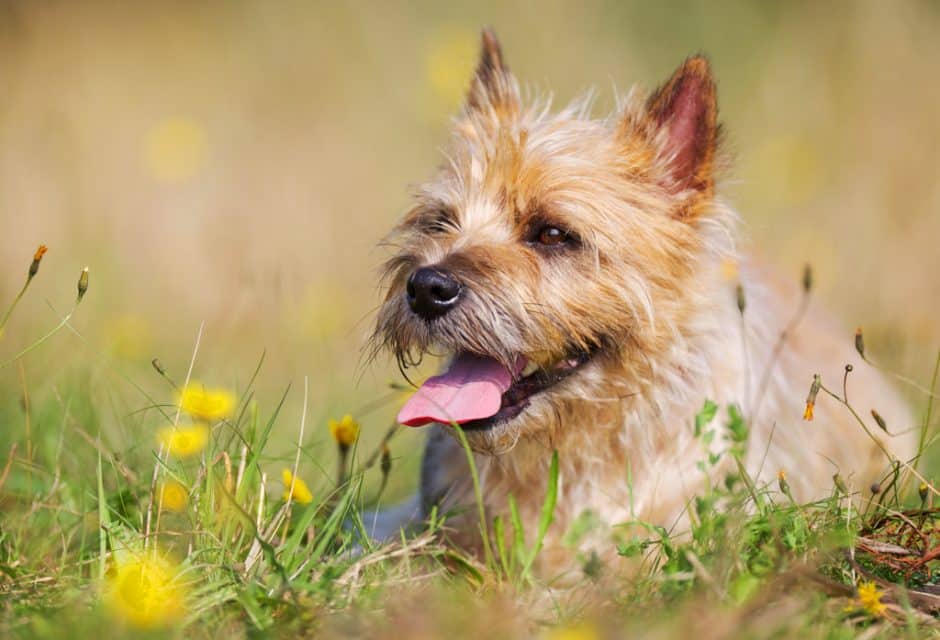
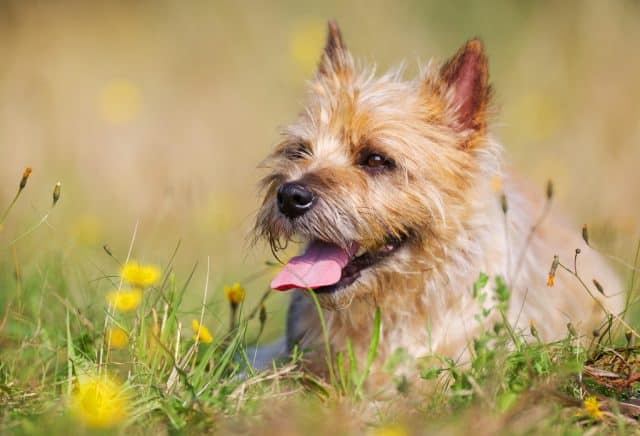
The Cairn Terrier
Courage, heart, brain

If I only had a brain, a heart, the nerve…” sing the Scarecrow, Tin Man, and Cowardly Lion in the classic film, The Wizard of Oz. It takes a plucky young Kansas girl and her equally spunky dog, Toto, to teach the trio about quick thinking, love, and courage. To Cairn Terrier owners everywhere, it comes as no surprise that the little dog who stood by Dorothy’s side with brains, heart, and nerve was a Cairn.
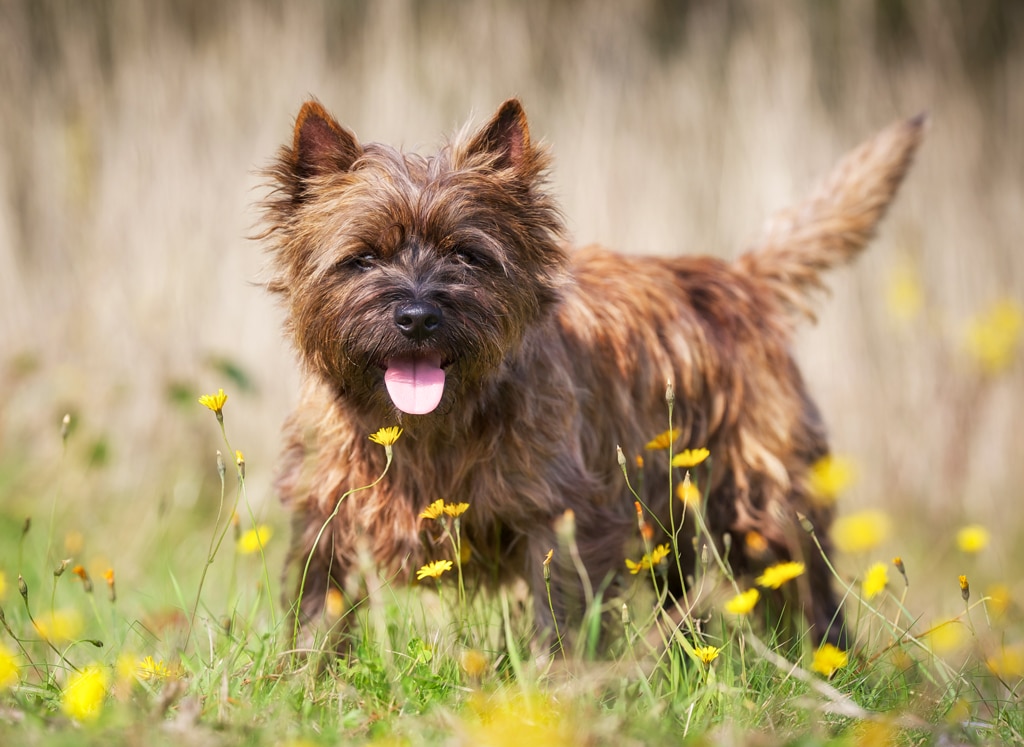
Photo Bigandt Photography/Bigstock
Hundreds of years ago, farmers and lairds in the rugged north of Scotland were already breeding small terriers to hunt otter, fox, badger, and other ground-dwelling animals. With rough terrain, brutal weather conditions, and fierce prey to contend with, the terriers’ lives were anything but a yellow brick road. The dogs favoured by the Scots were compact, robust specimens with coarse weather-proof coats and, above all, the “gameness” or courage to go into tight, dark spaces underground or between tumbled rocks and face animals that were fighting for their lives.
What these dogs looked like was considered of no consequence as long as they could do the job required. “These early terriers were highly prized and bred for their working ability, not appearance. Such characteristics as courage, tenacity and intelligence…were sought generation after generation,” reads the Cairn Terrier Club of America website.
The Scottish terriers were valued highly enough that King James I of England (who was Scottish by birth), saw them as fit to be a royal gift and sent a pack of them to France for that purpose in 1625.
The windswept Scottish landscape was marked by piles of rocks known as cairns, under which the quarry would often seek shelter. The dogs scrambling over and through the cairns were known variously as todhunters (tod is the Gaelic word for fox), or Scotch, Highland, or Skye terriers. Since the emphasis was on working ability and not physical characteristics, puppies within a litter could be long-backed or short, have any length of coat of any colour, and ears of various shapes, and the varieties of terrier were freely interbred. It was only later, when fanciers sought a way to distinguish each breed from among the other Scottish terriers, that Cairn Terrier became the official name of the rough-coated, short-backed variety.
The modern American Kennel Club standard for the Cairn specifies a size of 9.5 to 10 inches and a weight of 13 to 14 lbs. The low-maintenance double coat (long and harsh on the outside, soft and fluffy underneath) can be any colour except white; common colours include grey, in shades from silver to dark, black, red, and wheaten, as well as brindle variations on these colours. When choosing a puppy, owners had best be prepared to live with any colour, as it is near impossible to predict adult colour based on puppy coat. Dark “points”—face, ears, and tail tip—are optional but considered attractive. With his perky upright ears, bright eyes, and shaggy facial hair, the Cairn is said to have a foxy expression.
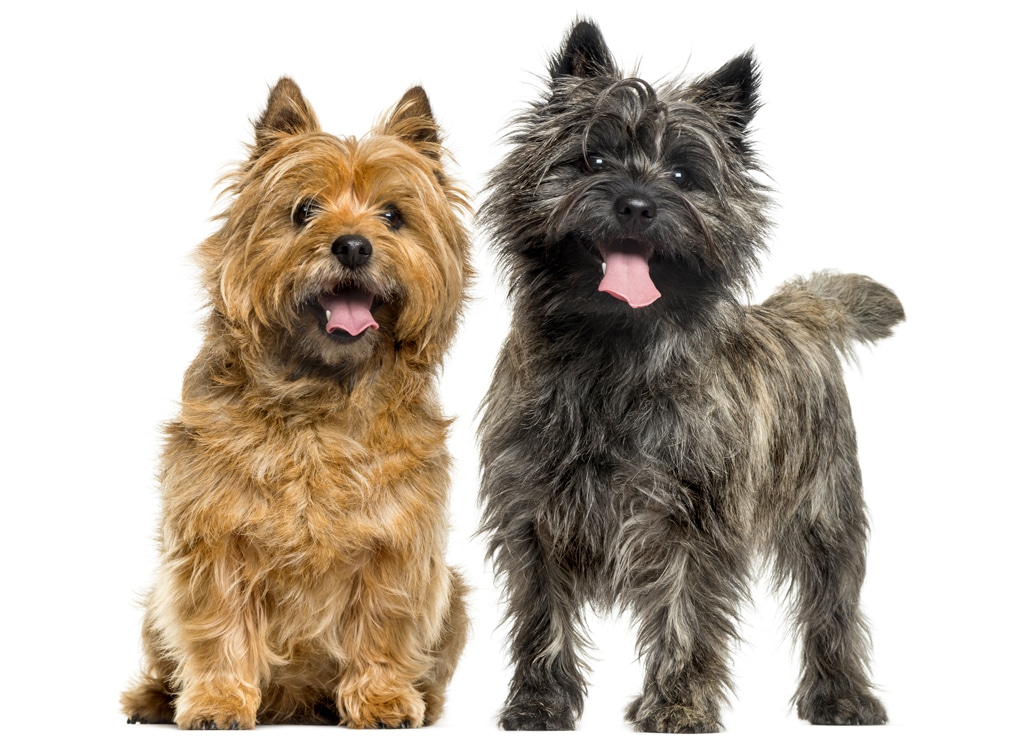
Photo Life on White/Bigstock
Members of this breed are hardy and long-lived (14 to 15 years), suffering few health complications. Some puppies may suffer from “lion jaw” (craniomandibular osteopathy), a non-cancerous thickening of the bones of the jaw or leg that usually resolves itself by the time the dog is fully grown.
To match his no-fuss appearance, the Cairn’s personality is sensible, alert, cheerful, and confident but not belligerent. Because they were originally kept to hunt in packs, Cairns are not scrappy towards other dogs. They enjoy children and can usually tolerate some accidental rough handling from youngsters (though children should always be supervised around any dog). The breed does carry an independent streak, however, and training them not to chase squirrels or anything else that runs away will be a Herculean task. Because of this, Cairns should be walked on leash or exercised in fenced areas only.
A sturdy physique and can-do attitude makes the Cairn a willing participant in any activity his owners may enjoy, from formal agility or obedience trials to hiking in the great outdoors or lunching with friends at the local sidewalk bistro. In her book, A New Owner’s Guide to Cairn Terriers (TFH; 2004), Sandra Murray writes: “Cairn Terriers have proven to be one of the most adaptable breeds, thriving equally as well in an apartment as on a rural acreage.” Cairns, of course, are supremely happy following their instincts at earthdog trials, where they use their keen senses to locate and confront prey underground (note that no animals are harmed during these trials). As Murray explains: “No other activity you will ever engage in with your Cairn will equal that total, concentrated effort and sheer joy your dog experiences in the hunt.” [For more on earthdog trials, see “Can You Dig It?” at moderndogmagazine.com/earthdogs]
Though the average Cairn Terrier may never be called upon to chase flying monkeys, face down a wicked witch, or unmask a fraudulent wizard, he or she is sure to equal Toto as an “Oz-some” companion on all your adventures.
» Read Your Breed For more breed profiles, go to moderndogmagazine.com/breeds
Join the newsletter and never miss out on dog content again!
"*" indicates required fields
By clicking the arrow, you agree to our web Terms of Use and Privacy & Cookie Policy. Easy unsubscribe links are provided in every email.
